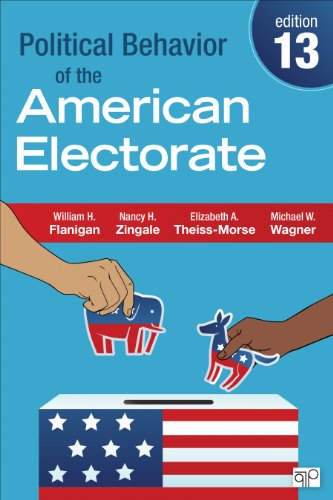New authors Elizabeth Theiss-Morse and Michael Wagner continue the tradition of Flanigan and Zingale by using American National Election Study data to provide a thorough analysis of the 2012 elections and of American political behaviour more generally. The authors explore get-out-the-vote efforts and the reasons people voted the way they did, as well as the nature and impact of partisanship, issues, and news media coverage in 2012―all with an eye toward understanding the trends that led up to the election.
William H. Flanigan is professor emeritus of political science at the University of Minnesota. He is the coeditor (With Joel H. Silbey and Allan G. Bogue) of
The History of American Electoral Behavior. With Jerome M. Clubb and Nancy H. Zingale, he coauthored
Partisan Realignment: Voters, Parties and Government in American History and coedited
Analyzing Electoral History: A Guide to the Study of American Voter Behavior.
Nancy H. Zingale is professor emerita of political science at the University of St. Thomas (Minnesota). With Jerome M. Clubb and William H. Flanigan, she coauthored
Partisan Realignment: Voters, Parties and Government in American History and coedited
Analyzing Electoral History: A Guide to the Study of American Voter Behavior.
Elizabeth Theiss-Morse is the Willa Cather Professor of Political Science at the University of Nebraska-Lincoln. She is the author of several award-winning books including Who Counts as an American?, Stealth Democracy, Congress as Public Enemy, and With Malice Toward Some.
Michael W. Wagner is assistant professor in the School of Journalism and Mass Communication at the University of Wisconsin-Madison. There, he is also the Louis A. Maier Faculty Development Fellow and holds an affiliated position in the Department of Political Science. He has won awards for his teaching and scholarship in the area of political communication in American politics.
